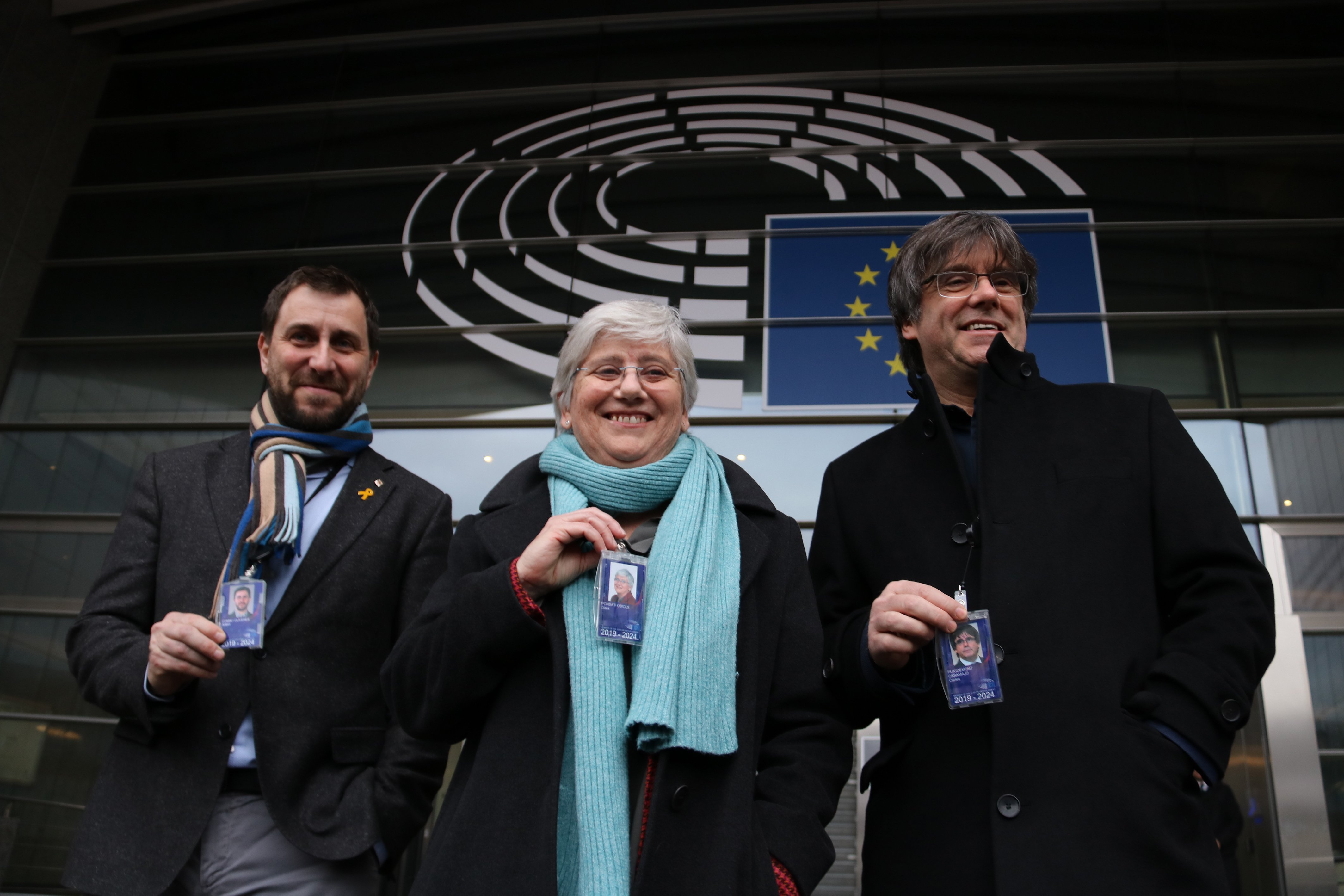New MEP Clara Ponsatí has received her provisional accreditation as a European parliamentarian, which will allow her to take her seat from 10th February.
Ponsatí picked up her credentials at the Brussels centre of the parliament this Wednesday morning in a process that was quicker than expected, accompanied by the Catalan president in exile Carles Puigdemont and former minister Toni Comín - her fellow MEPs on the pro-independence JxCat ticket.
Scottish justice appears to have disregarded Spanish judge Pablo Llarena, who wanted the European arrest warrant maintained against the former minister and asked for extra measures to stop her leaving the UK.
Benvinguda a l’@Europarl_EN, MEP @ClaraPonsati! #JuntsxEuropa pic.twitter.com/QdOvzjZEMo
— Carles Puigdemont (@KRLS) February 5, 2020
As she left the Parliament in Brussels this morning, Ponsatí spoke to the media, saying that "justice has been done today" and that "finally" all the people who voted for her ticket in last year's elections are represented.
She also publicly thanked the European Court of Justice for paving the way for her to become an MEP through its ruling on the Oriol Junqueras case last December.
What will happen to Ponsatí's extradition hearing?
Ponsatí has made it clear that her intention is to continue to respond to Scottish justice, and intends to appear at the next hearing with the Edinburgh judge set for March 5th. It is expected that this is when the court will decide whether Ponsatí's parliamentary immunity as an MEP covers the United Kingdom.
On Monday, Spain's Supreme Court issued a ruling in which it asked the United Kingdom to continue the legal processing of the European Arrest Warrant against Clara Ponsatí and to reinforce the precautionary measures "to prevent her departure to another country."
Judge Pablo Llarena accepted that the Catalan university teacher and politician has parliamentary immunity as an MEP, but his objection was that, due to Brexit, this "does not reach the territory of [the UK]".
On Tuesday, the exiled Catalan minister was able to travel to Brussels without impediment.
Spanish prosecutors have submitted that Ponsatí's goal when she stood for European election was to avoid the criminal proceedings against her. Her election as an MEP to take up the vacant seats created by Brexit, say the prosecutors, occurred after she had been "charged and having previously fled from Spanish justice."
The prosecutors' submission asserts that Spanish national law should now be applied to Ponsatí's case. Under this, the court only needs to request permission of the legislative body with regard to lifting immunity at the initial stages when a defendant is charged and proceedings are first started.

